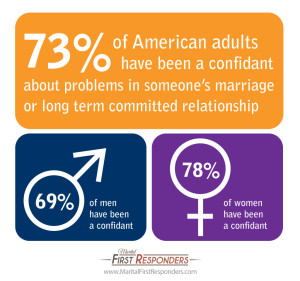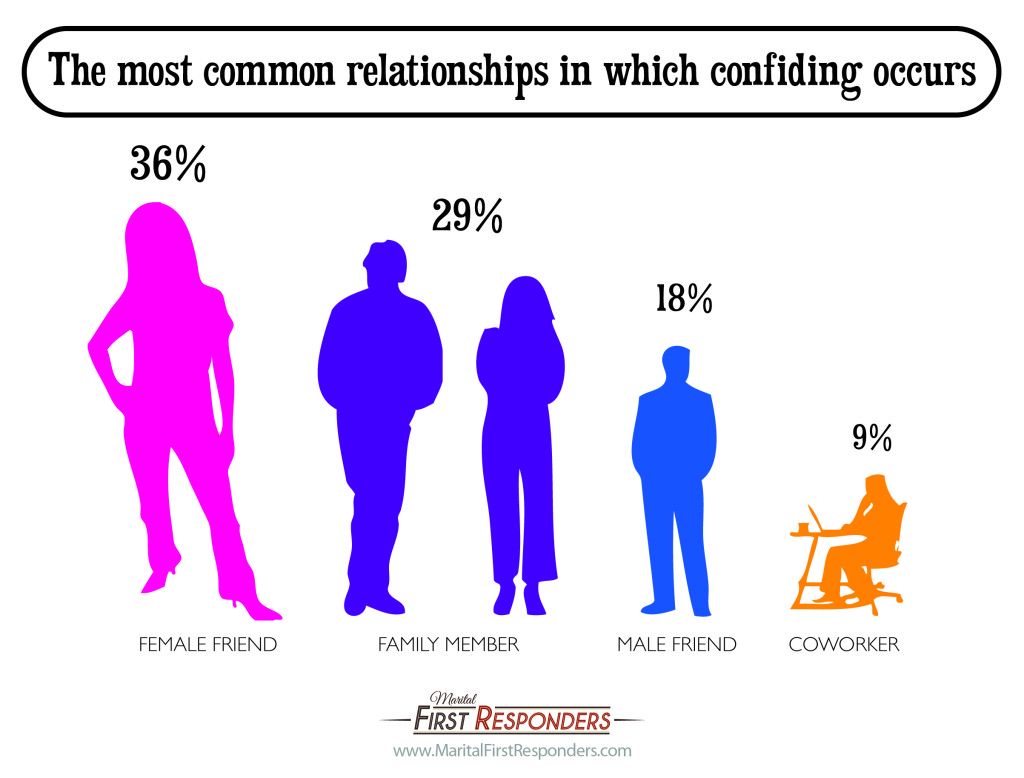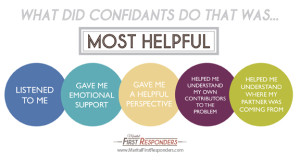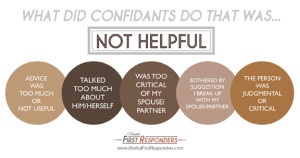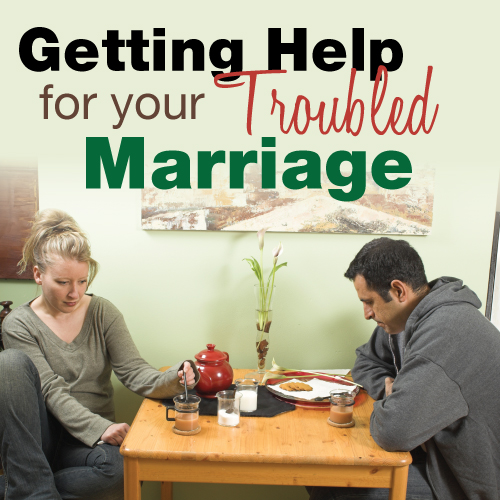How a Confidant can Help a SOS Marriage
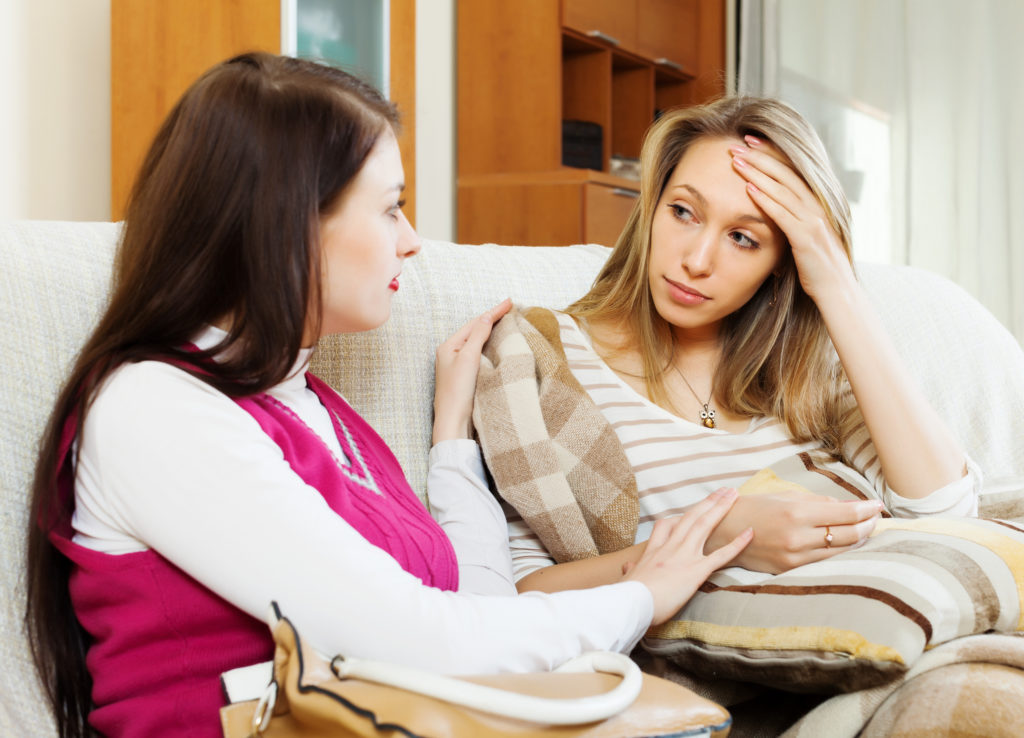
Be There for a Friend’s Relationship Crisis, But Don’t Give Advice
By ELIZABETH BERNSTEIN | Updated Feb. 9, 2015 | Wall Street Journal | Full Article: here
Sooner or later, someone in the depths of a marital or relationship problem will want to talk about what’s going on and possibly to ask for advice. Being there for that person—a family member, a friend or even a work colleague—is challenging. No one teaches us how to give emotional support.
When someone we care about confides in us, a common instinct is to make this person feel better at all costs. We may offer false hope or criticize the spouse or partner, and if we are close to this person, their distress may become our distress. But these reactions aren’t helpful.
It Takes Restraint, Listening Skills to Be a ‘First Responder’ to Someone’s Marriage Problems
Some experts are teaching people how to be more confident and effective in supporting a friend or family member through a marriage or relationship crisis—and how to set and maintain boundaries.

“The goal of a marital first responder is to be a good friend, not a therapist,” says William Doherty, a marriage and family therapist and professor of family social science at the University of Minnesota. He has developed a workshop called “Marital First Responders,” which he conducts with military families, drug offenders and regular people at community centers and churches. I recently attended a workshop at a townhouse in Manhattan.
Marital first responders are natural confidants, the people others turn to first when they need to talk. A soon-to-be-published study of 1,000 people ages 25 to 70, conducted by Dr. Doherty and colleagues, indicates that 74% of adults have been a confidant to someone going through a marital or long-term relationship problem.
Natural confidants are most often a female friend, a family member (especially a sibling or adult child), a male friend or a co-worker.
In his research, Dr. Doherty found people who confide in a friend say it is most helpful if the friend simply listens. Confidants also can help by giving emotional support and helping the confider put the situation in perspective. They often can help a person understand his or her contribution to the problem or where the spouse is coming from.
Confidants can make mistakes. They say judgmental things or talk too much about themselves. They take sides. They try to fix the problem. “Don’t confuse being a confidant with being an advice giver,” Dr. Doherty warns.
Read the Full Article: here
NEW RESEARCH ON MARITAL CONFIDANTS
Marital First Responders | More info: here
The following is taken fro the Marital First Responders website.
The study involved a survey completed by Internet panel of 1,000 U.S. adults ages 25-70, conducted by YouGov.com, an academically respected Internet survey company. The sample was representative of the U.S. population on age, gender, race, and education. Here are the highlights, followed by detailed findings.
- The great majority of American adults have had someone confide in them about a problem in a marriage.
- Female friends and a variety of family members are most likely to confide in someone about a marriage problem.
- People bring a wide range of problems to confidants, from mild to very serious.
- Many confidants lack confidence in how to be helpful, and some of them are stressed by the role.
- Listening, being supportive, and offering perspective were the most helpful things confidants do.
And here are more excerpts:
Confiding in professionals before divorcing:
29% of divorced people confided in a professional counselor, and 15% in a clergy person
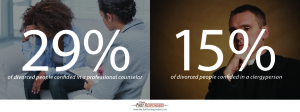
More results: here
